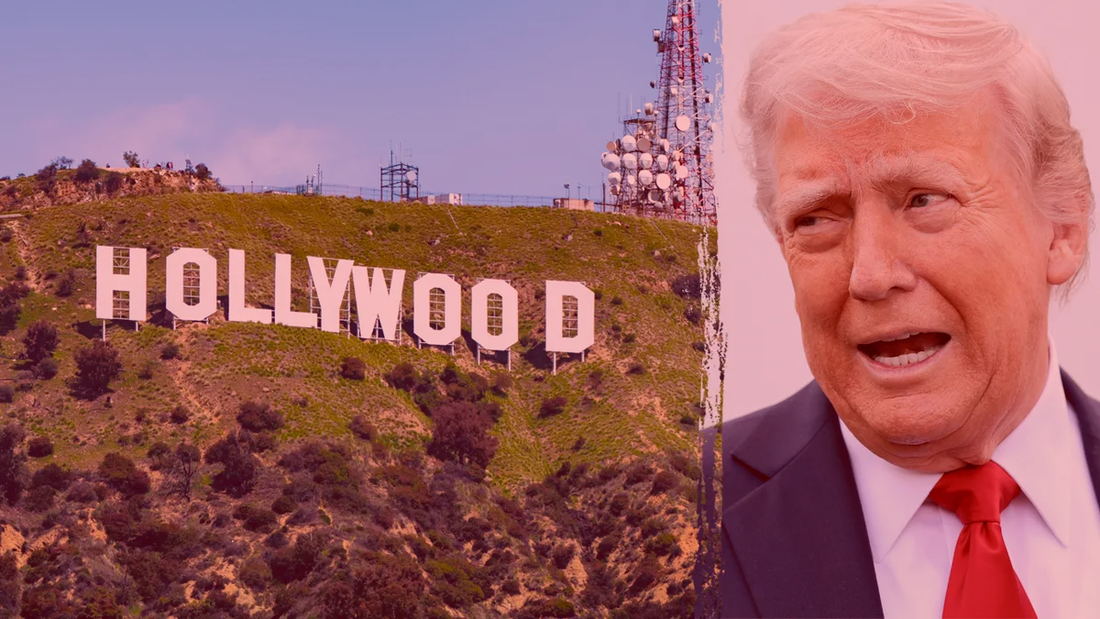
Trump’s 100% Tariff on Foreign Films - What you need to know
Trump’s 100% Tariff on Foreign Films
What It Means for Australia and the Global Screen Industry
What You Need to Know (Fast Facts)
- 100% tariff announced on all foreign made films entering U.S. theatres or platforms.
-
This includes Australian films, even those co-produced with U.S. studios.
-
The tariff could double the cost of showing Aussie movies in U.S. cinemas or streaming.
-
Hollywood is confused. Movies aren’t physical goods; they’re intellectual property, making the tariff tough to enforce.
-
Experts say the move may violate international trade laws, including the U.S/Australia Free Trade Agreement.
-
Local hits like Talk to Me would’ve struggled to reach the U.S. market under these new rules.
-
Streaming platforms might dodge some impact, but distribution deals for Aussie content could dry up.
-
Australia’s film sector fears less U.S. investment and fewer international partnerships.
-
The Australian government hasn’t responded directly yet, but tensions over U.S. tariffs are clearly rising.
Full Breakdown: What Trump's Tariff Could Actually Do
The Announcement
On May 4, 2025, former U.S. President Donald Trump posted on Truth Social that he would “immediately begin the process” of placing a 100% tariff on any film “produced in foreign lands” and imported into the U.S. He framed it as a way to stop Hollywood from filming overseas and to revive a “dying” domestic industry:
“WE WANT MOVIES MADE IN AMERICA, AGAIN!”
He instructed the Commerce Department and U.S. Trade Representative to start enforcement though details remain vague.
Global Industry Reaction & Legal Confusion
The reaction has been swift and incredulous.
Film studios, trade lawyers, and producers all asked the same thing:
How do you even tariff a film?
Films are intellectual property, often co-produced globally. A single production might be filmed in Australia, edited in Canada, and financed in the U.S. Tariffs are usually placed on goods, not creative works or digital exports.
Under WTO rules and the U.S. Australia Free Trade Agreement, films are treated as services not goods making a straight tariff likely unenforceable.
A former U.S. commerce official warned: “Retaliation from other countries could kill our industry. We have a lot more to lose.”
What It Means for Australia
U.S. Studios Filming in Australia
Australia is a go-to location for U.S. studios thanks to:
- 30% federal production rebates
- Additional state-level incentives
- Top-tier crews, VFX studios, and infrastructure
U.S. backed films like The Fall Guy, Planet of the Apes, and multiple Marvel titles have all filmed here recently. In 2023/24 alone, foreign productions spent over $768 million in the Australian screen sector.
A tariff could reverse this. If U.S. studios think filming here puts them at risk of penalties when releasing the film back home, they may simply choose to film elsewhere.
As one analyst put it:
“The impact will have more to do with the American productions that are filmed here than the local films we export.”
Aussie Films in U.S. Theaters
Australian features like The Dry, Talk to Me, or The Nightingale could become too expensive to release in the U.S. if a 100% import tariff is applied.
Low to mid budget films would be especially vulnerable. Distributors could simply pass on them rather than pay double the cost or risk financial losses.
Streaming Services: Loophole or Target?
Streaming content might escape the tariff for now, because streaming is considered a service, not a physical import. But:
-
Licensing and rights deals could still be affected
-
U.S. platforms might stop buying Aussie content
-
Co-productions with international studios might drop off
Series like Heartbreak High or Mystery Road may find fewer U.S. buyers. And while streamers like Netflix, Stan, and Disney+ invest in local productions, they may shift strategy if tariffs get involved.
Legal Hurdles and Global Risk
Legal analysts say this policy is likely illegal or unenforceable. Key reasons:
- Films are not goods they’re IP/services.
- The U.S. Australia Free Trade Agreement protects cultural exports.
- Tariffs like this could violate WTO rules and trigger lawsuits or counter-tariffs.
Even if symbolic, the uncertainty alone could discourage investment and deals.
Industry Reactions
-
Hollywood: Executives are “bewildered.” No clear mechanism for enforcement exists.
-
Australian film community: Quiet but cautious. Unions like MEAA are using this to push for more support and local quotas.
-
Global analysts: See the move as political grandstanding, not a sound trade policy.
The most immediate threat may not be the tariff itself but the chilling effect it has on:
-
International partnerships
-
Production planning
-
Film festival financing and acquisitions
In Summary
Trump’s 100% foreign film tariff might never be fully enforced but the damage may already be done.
Australia risks:
-
Losing U.S. investment
-
Seeing fewer international productions
-
Facing reduced access to the U.S. market for its homegrown stories
Whether it’s legal, enforceable, or even real doesn’t matter as much as the fact that the global film industry is already reacting.
As the world heads into another U.S. election cycle, this could be just the beginning of deeper protectionist shocks across entertainment and trade.
Sources
- Reuters: Trump’s announcement and Commerce Department directive
- ABC News Australia: Reaction from the Australian film sector and production data
- 9News: Legal confusion over treating films as import goods
- The Nightly: Potential impact on smaller Aussie films and cinema distribution
- Polygon: Industry concerns over global film markets and anime imports
- Los Angeles Times: Hollywood execs reacting with confusion and concern
- FilmInk: MEAA union response and local content policy push
- The Guardian: Australia’s broader trade tension with Trump’s tariffs

